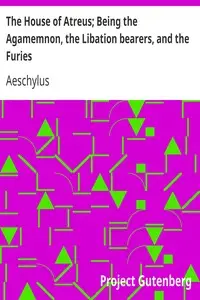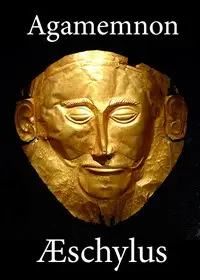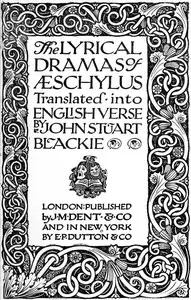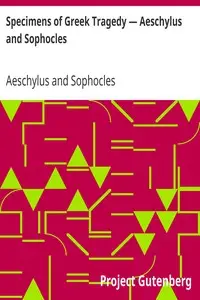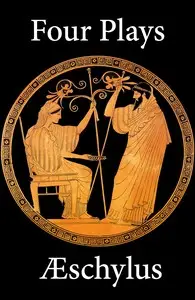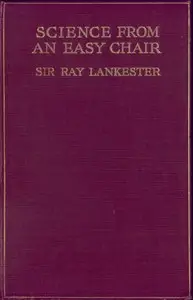"Prometheus Bound and the Seven Against Thebes" by Aeschylus is a collection of two tragedies that showcase the themes of defiance against divine authority and the tragic outcomes of human conflict, likely written in the 5th century BC. The main character of "Prometheus Bound" is Prometheus, a Titan who has been punished by Jupiter for stealing fire and giving it to humanity, while "The Seven Against Thebes" focuses on the conflict in Thebes and the tragic fate of its defenders as they confront external forces. The plays explore profound moral and philosophical questions surrounding suffering, power, and fate. At the start of "Prometheus Bound," Prometheus is chained to a rocky crag in Scythia as punishment for his transgressions against Zeus, who has seized power from the Titans. As he reflects on his fate, he interacts with characters like Strength, Force, and Vulcan, who reluctantly carry out Zeus's command to bind him. His misery intensifies as he reveals his benevolence towards humanity and the gifts he has bestowed upon them, contrasting sharply with the betrayal he faces from the god he once supported. In "The Seven Against Thebes," the action unfolds with Eteocles rallying citizens in preparation for an impending siege, emphasizing themes of valor, brotherhood, and the tragic consequences of war as the destinies of the characters become intertwined with their fateful choices. (This is an automatically generated summary.)

Aeschylus' Prometheus Bound and the Seven Against Thebes
By Aeschylus
"Prometheus Bound and the Seven Against Thebes" by Aeschylus is a collection of two tragedies that showcase the themes of defiance against divine auth...
Genres
Released
2008-12-08
Formats
epub
epub3 (images)
epub (images)
mobi
mobi (images)
Free Download
Overview
About the Author
Aeschylus was an ancient Greek tragedian often described as the father of tragedy. Academic knowledge of the genre begins with his work, and understanding of earlier Greek tragedy is largely based on inferences made from reading his surviving plays. According to Aristotle, he expanded the number of characters in the theatre and allowed conflict among them. Formerly, characters interacted only with the chorus.
Total Reviews
10.0k
Total reviews from Goodreads may change

